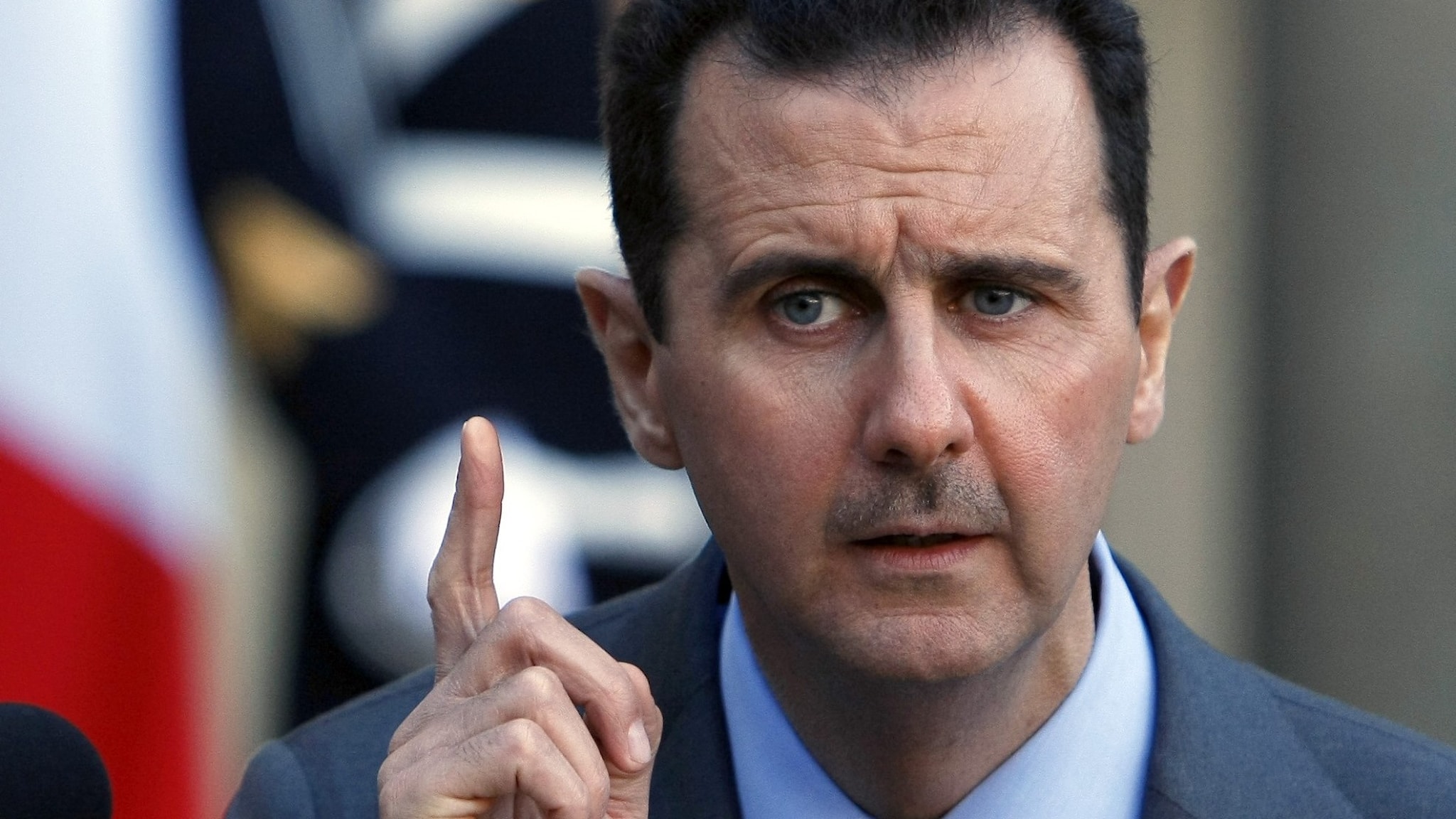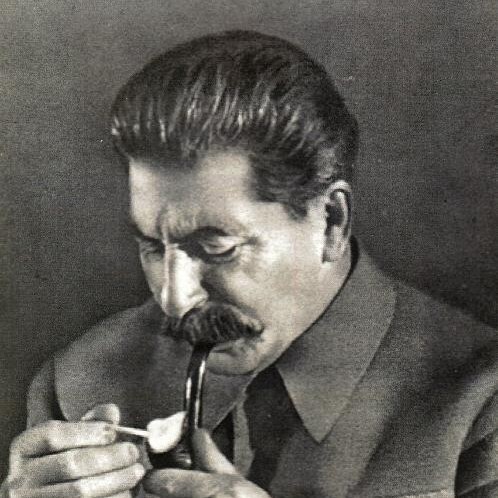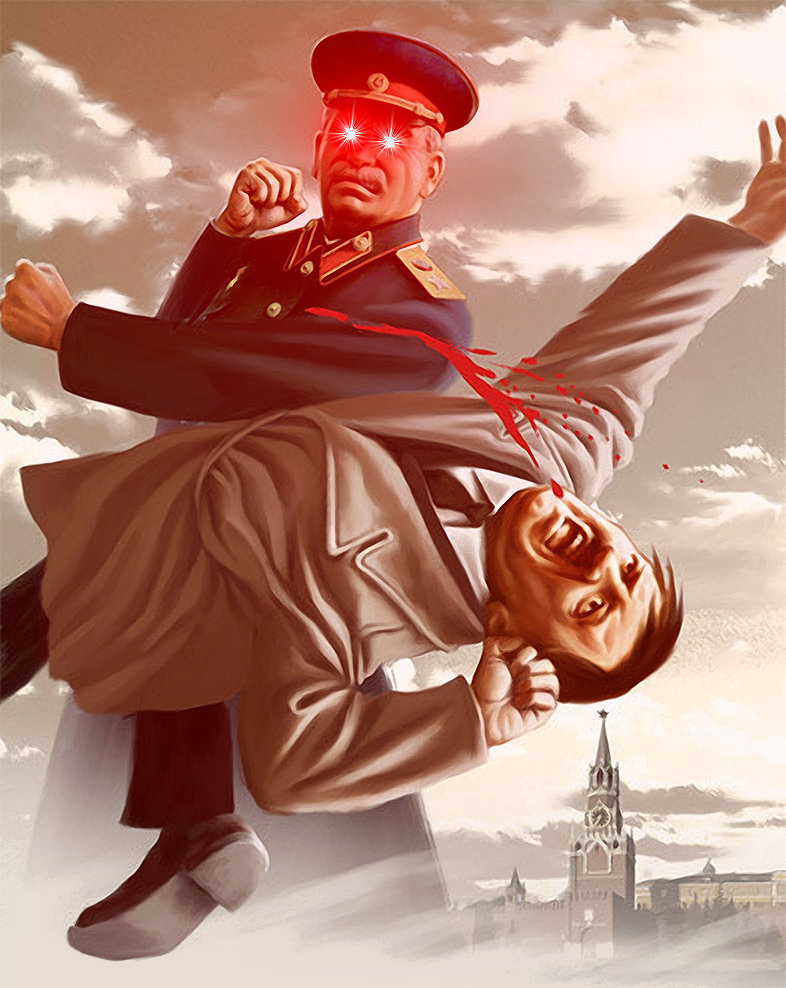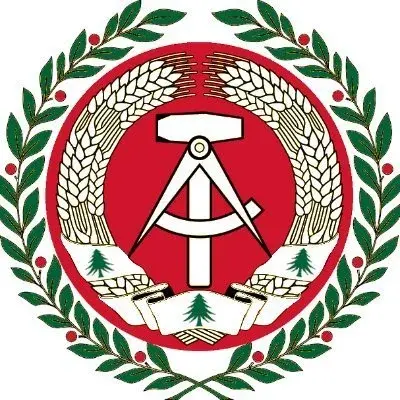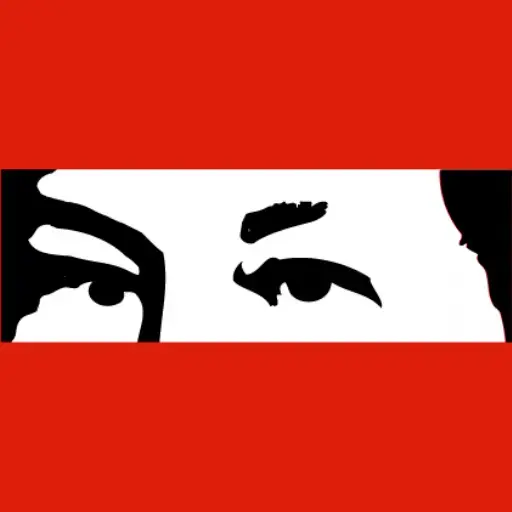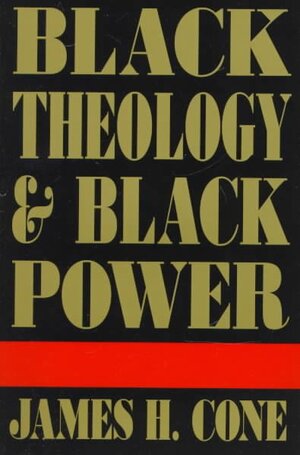Image is from this article in the New York Times.
A magnitude 6.8 earthquake struck Morocco on September 8th, with the epicenter 73 kilometers away from Marrakesh.
At least 2500 people have died as of September 11th, most outside Marrakesh, with more people being pulled out of the rubble every day, making it the deadliest earthquake in Morocco since 1960, and the second-deadliest earthquake this year (first being, of course, the one in Turkiye-Syria in February, which killed nearly 60,000 people). While the deaths are the most horrific part, damage to historic sites has also been very significant - including buildings dating back to the 1000s.
Morocco is situated close to the Eurasian-African plate boundary, where the two plates are colliding. The rock comprising the Atlas Mountains, situated along the northwestern coast of Africa separating the Sahara from the Mediterranean Sea, are being pushed together at a rate of 1 millimeter per year, and thus the mountains are slowly growing. As they collide, energy is stored up over time and then released, and faults develop. The earthquake this month originated on one such fault, as did the earthquake in 1960. The earthquake hypocenter was 20-25 kilometers underground, with 1.7 meters (or 5 and a half feet) of rock suddenly shifting along a fault ~30 kilometers (19 miles) long.
Earthquake prediction is still deeply imprecise at best, and obtaining decent knowledge and forewarning of earthquakes is highly dependent on dense seismometer arrays that constantly monitor seismic activity, such as in Japan, and detailed understanding of the local and regional tectonic environment. The best way to prevent damage is to build earthquake-resistant infrastructure and establish routines for escaping buildings and reaching safety. All of these, of course, are underdeveloped to nonexistent in developing countries, particularly in poorer communities inside those countries.
The Country of the Week, in honour of Allende’s death 50 years ago (the only bad geopolitical event that has occurred on September 11th, of course), is Chile. Feel free to chime in with books, essays, longform articles, even stories and anecdotes or rants. More detail here.
Here is the map of the Ukraine conflict, courtesy of Wikipedia.
The weekly update is here!
Links and Stuff
The bulletins site is down.
Examples of Ukrainian Nazis and fascists
Examples of racism/euro-centrism during the Russia-Ukraine conflict
Add to the above list if you can.
Resources For Understanding The War
Defense Politics Asia’s youtube channel and their map. Their youtube channel has substantially diminished in quality but the map is still useful.
Moon of Alabama, which tends to have interesting analysis. Avoid the comment section.
Understanding War and the Saker: reactionary sources that have occasional insights on the war.
Alexander Mercouris, who does daily videos on the conflict. While he is a reactionary and surrounds himself with likeminded people, his daily update videos are relatively brainworm-free and good if you don’t want to follow Russian telegram channels to get news. He also co-hosts The Duran, which is more explicitly conservative, racist, sexist, transphobic, anti-communist, etc when guests are invited on, but is just about tolerable when it’s just the two of them if you want a little more analysis.
On the ground: Patrick Lancaster, an independent and very good journalist reporting in the warzone on the separatists’ side.
Unedited videos of Russian/Ukrainian press conferences and speeches.
Telegram Channels
Again, CW for anti-LGBT and racist, sexist, etc speech, as well as combat footage.
Pro-Russian
https://t.me/aleksandr_skif ~ DPR’s former Defense Minister and Colonel in the DPR’s forces. Russian language.
https://t.me/Slavyangrad ~ A few different pro-Russian people gather frequent content for this channel (~100 posts per day), some socialist, but all socially reactionary. If you can only tolerate using one Russian telegram channel, I would recommend this one.
https://t.me/s/levigodman ~ Does daily update posts.
https://t.me/patricklancasternewstoday ~ Patrick Lancaster’s telegram channel.
https://t.me/gonzowarr ~ A big Russian commentator.
https://t.me/rybar ~ One of, if not the, biggest Russian telegram channels focussing on the war out there. Actually quite balanced, maybe even pessimistic about Russia. Produces interesting and useful maps.
https://t.me/epoddubny ~ Russian language.
https://t.me/boris_rozhin ~ Russian language.
https://t.me/mod_russia_en ~ Russian Ministry of Defense. Does daily, if rather bland updates on the number of Ukrainians killed, etc. The figures appear to be approximately accurate; if you want, reduce all numbers by 25% as a ‘propaganda tax’, if you don’t believe them. Does not cover everything, for obvious reasons, and virtually never details Russian losses.
https://t.me/UkraineHumanRightsAbuses ~ Pro-Russian, documents abuses that Ukraine commits.
Pro-Ukraine
Almost every Western media outlet.
https://discord.gg/projectowl ~ Pro-Ukrainian OSINT Discord.
https://t.me/ice_inii ~ Alleged Ukrainian account with a rather cynical take on the entire thing.
Last week’s discussion post.
No cuck n chad ranking this week, maybe next week as well unless something funny and cool happens. I’m travelling to Bashar Al Assad’s based Syria this week and staying for a while. I’m changing jobs soon and got a relatively fat paycheck for doing that and also around two months off in between jobs. So I decided to take my wife to Syria and Lebanon, where it’s quite cheap, and I live for free there with random family members, and I sort of got addicted to the Middle East when I last visited. In exchange for no rankings, you’ll get cool stories and possibly some pics if the internet situation permits and I feel comfortable doing so. If I die in an American or Israeli airstrike on Damascus, tell Bernie Sanders that he’s a cuck and bury me next to Prigozhin.

Have fun!
Damn I’m jealous, stay safe. Do US sanctions or visa restrictions impact your ability to go to Syria or return to your home country afterwards? I didn’t think Americans could visit Syria without gaining suspicions

if you’re cia they let you do it
The Bank of Canada has published a study that concludes that as not enough countries have joined the sanctions on Russia, it is more profitable to ignore sanctions than comply.
The study looked at what affect on a country non-adherence of third countries to the sanctions regime affects the sanctioning countries. The study concluded if an insufficient number of countries support restrictive measures, Russia loses less, while those countries that are friendly are better off thanks to increased trade of goods that can be sold at higher prices.
“Our welfare analysis demonstrates that the sanctioned country’s welfare losses are significantly mitigated, and the sanctioning country’s losses are amplified, if the third country does not join the sanctions, but the third country benefits from not joining,” the study found.
To illustrate, the study’s calculations conclude that if a critical mass of countries were to join in restricting Russian gas purchases, Russia’s GDP growth would decline by 9%. However, as long as only European countries comply with the measures, Russia’s per capita GDP is reduced only by 4%.
At the same time, those countries facilitating the trade of sanctioned goods see substantial gains in their balance of trade. A raft of countries have seen their trade turnover with Russia explode in the last 18 months, including most of Central Asia, Turkey, China and even the Baltic states, which have become a gateway for goods to Russia. Despite the war with Georgia in 2008, today the small country in the Caucasus is more economically dependent on Russia than at any time since its independence thanks to booming trade.
If you kick one person out of the party, they are alone on the street. If you kick half the people out of the party, they start having fun outside.
if you start raining on their parade they’ll enjoy a free shower. if you lace the water with poison they might gain superpowers.
Many of the global south countries that don’t sanction Russia don’t even particularly like Russia. They’re simply siding with them and China because the west offers 0 alternative solutions for their fuel and food problems while Russia is continuing to export. The west is shooting itself in the foot because they’re stupid enough to depend on their mortal enemy and racist enough to neglect the poor countries that are necessary for sanctions to work.
Many African leaders have justified their support for China and Russia because of their assistance with vaccines. Even neoliberal shit rags have warned their leaders to stop being condescending and hypocritical if they want Africa and South America’s support. Everyone remembers when the west spent more time bitching and moaning about the efficacy of china’s and Russia’s vaccines instead of helping the countries in need.

lol why is this even a study? Obviously it’s more profitable to engage with a large market rather than not
I bring a sort of “constantly bringing up the Chilean coup” vibe to 9/11 that liberals and chuds don’t really like
Hell yeah Gunther
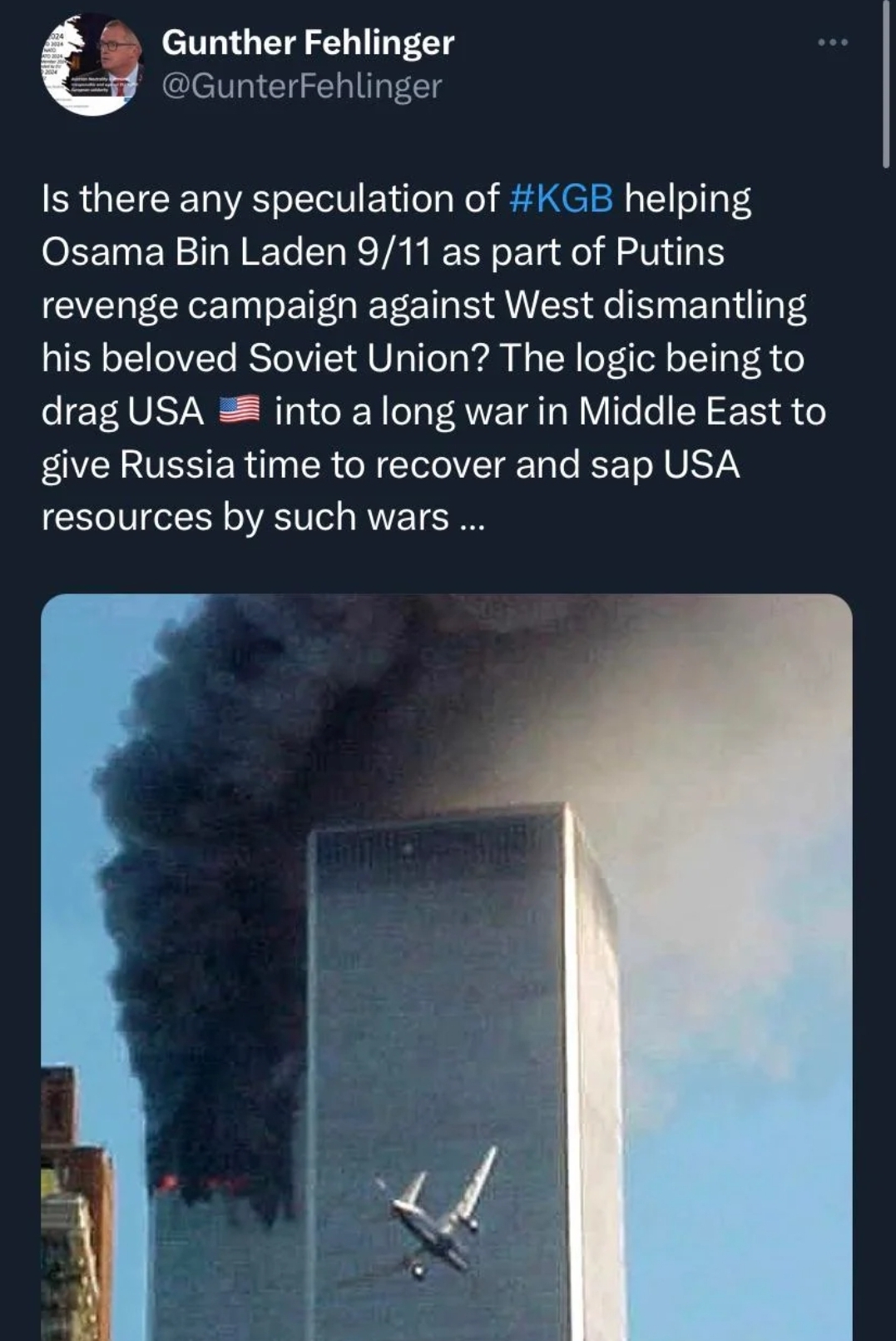
Is there any speculation of the KGB putting objects too high on shelves for me to reach as part of their revenge campaign against me? The logic being to make me have to grab an object to stand on, or ask somebody else for help, and make me look small and weak?
god fucking damn it, I think the KGB is hiding my keys again
“The KGB ate my homework.”
IDK, I think the Mujahadeen and Al Qaeda weren’t particularly pro-Soviet, to say the least. Come on Günther, think these things through, you have to have more believable conspiracies.
Below average Günther: 2/5 Balkanizations
It’s literally just “Russia must be behind every bad thing that’s ever happened.” If it happened before Russia existed they simply race science their way to “but it’s still Russia’s fault”. There is no standard of evidence (the concept itself is Russian dezinformatsya). Liberals don’t even need top-down direction to start bleating like the sheep they are about how Russia made them choke on their coffee this morning.
Got ya covered
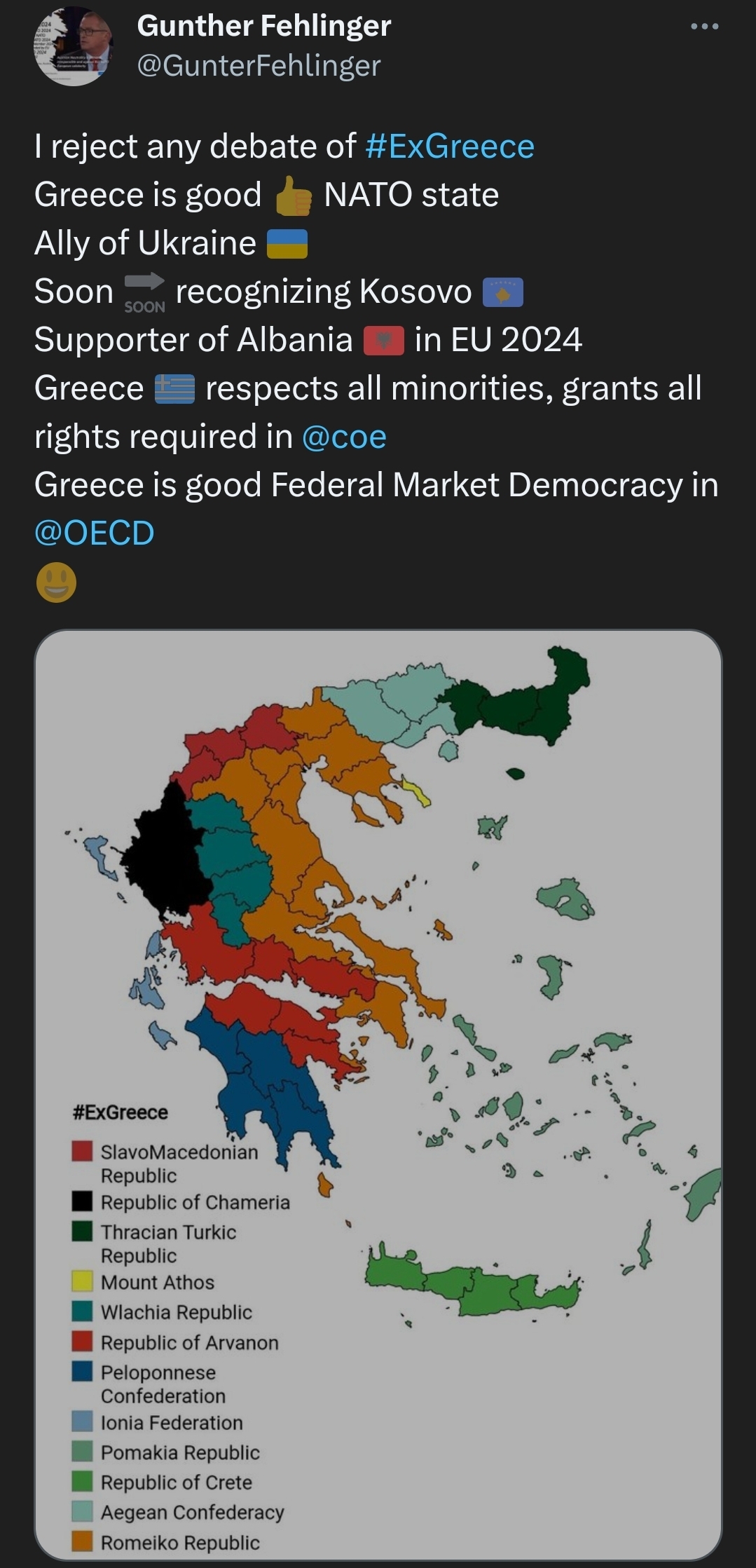
I cant believe the KGB shat my pants
gunther, the kgb had been dissolved for 10 years
gunther, they went kaput with the ussr gunther
gunther, are you ok?Is there any speculations on the #KGB shitting my pants as part of Putin’s revenge campaign against the west dismantling his beloved Soviet Union?
There’s definitely evidence of them shitting mine, the bois at Langley did a forensic examination of the skid stains and borscht doo doo ass is typical KGB bullshit
I regret to inform you that you’ve been played like a damn fiddle. This is from the parody account not from the real one. You can see that it’s from “Gunter” and not “Gunther”. This is the third time I’ve seen people get taken in by this. Gunther’s normal posting is so deranged that this doesn’t seem unusual.Edit: Nope, it’s real https://twitter.com/GunterFehlinger/status/1701235295662817478

we should have seen it coming. he didn’t post an image of how the twin towers could have been balkanised
It looks like I was mistaken and this actually the real Gunther. He really is that deranged.
Ah fuck, you’re right. It looks like it was I that was a victim of disinformation.
A Beautiful Mind (2001)
Allende was a threat because he was a marxist, and it is a FACT that all marxists don’t know Basic Economics ™, so he was going to run Chile down completely and plunge them into stone age. So We ™ had to intervene to avoid this, we had to grab this shady general Pinochet, give him money and training and direct him to coup Allende and install a decades-long dictatorship in place, so that WE can run Chile down by OUR terms.
this aint a bit this is literally what neolibs say
What if there had been no coup in Chile in 1973?: The Thirty-Sixth Newsletter (2023)
If there had been no coup in Chile, there might not have been coups in Peru (1975) and Argentina (1976). Without these coups, perhaps the military dictatorships in Bolivia, Brazil, and Paraguay would have withdrawn in the face of popular agitation, inspired by Chile’s example. Perhaps, in this context, the close relationship between Chile’s Salvador Allende and Cuba’s Fidel Castro would have broken Washington’s illegal blockade of revolutionary Cuba. Perhaps the promises made at the UN Conference on Trade and Development (UNCTAD) meeting in Santiago in 1972 might have been realised, among them the enactment of a robust New International Economic Order (NIEO) in 1974 that would have set aside the imperial privileges of the Dollar-Wall Street complex and its attendant agencies, the International Monetary Fund (IMF) and the World Bank. Perhaps the just economic order that was being put in place in Chile would have been expanded to the world.

But the coup did happen. The military dictatorship killed, disappeared, and sent into exile hundreds of thousands of people, setting in motion a dynamic of repression that has been difficult for Chile to reverse despite the return to democracy in 1990. From being a laboratory for socialism, Chile—under the tight grip of the military—became a laboratory for neoliberalism. Despite its relatively small population of roughly ten million (a tenth of the size of Brazil’s population), the coup in Chile in 1973 had a global impact. At that time, the coup was not just seen as a coup against the Popular Unity government of Salvador Allende, but as a coup against the Third World.
Hexagonal world news service best world news service ty

the communist version of The Newsroom
Imagine NPR but actually good
Hexbear radio news in NPR voice would be very good
I’m gunna newscooooooooom
Hex News

Literally yes
The lib consensus seems to be that Putin is hoping Trump wins the 2024 election and pulls the rug, forcing Ukraine to accept defeat. I can’t help but wonder if Putin is planning almost the opposite. Steamroll Ukraine in 2024, before the US election, shocking the West. Trump can then use that complete failure as ammunition to secure victory. Frankly, I think a second Trump presidency is already pretty likely, and that little nudge might push it into “sure thing” territory.
I think the problem with this line of thinking is that Putin can just “plan” to steamroll Ukraine in 2024, and that the only thing preventing Russia from already doing so is Putin’s “plan.” If Russia could steamroll Ukraine they would’ve done so already; geopolitics does not revolve around US election cycles. The war in Ukraine may end in 2024, maybe Ukraine’s military will collapse thanks to all the pressure on it and their dwindling supplies, but it won’t go according to anybody’s “plan,” as it’s not up to Putin to decide when the war ends in a Russian victory outside of committing far more troops than they already have, which I don’t see on the horizon given their current strategy seems to be working, albeit very slowly.
I agree that Trump’s victory seems likely though, and if the situation in Ukraine wraps up in 2024 it’s almost a sure thing.
I don’t mean like a single “grand plan” or anything. Just observing things as they happen and preparing actions accordingly.
If Russia’s intelligence says Ukraine’s military is weak, and the US election is known to happen on a specific date, that allows Putin to formulate a plan to take advantage of that.
But like, what’s Russia going to do with that information that they wouldn’t already do? There’s no magic they can do here to make Ukraine fold faster.
The timing of the inevitable Russian offensive. To minimize losses, it might be best for Russia to defend until 2025 or 2026. However, Putin might accept greater losses to attack in 2024 if it also has potential to influence the US election.
I think as a broadly applicable rule, the slower this conflict burns the better it is for Russia.
That’s not the same as saying the longer it burns since I think Russia has more interest in a permanent settlement than a continued war, but the slower it burns means cheaper for Russia in terms of western support fading away and Russian advantages in manufacturing of munitions being maximized.
I don’t see any reason for Putin to engage in a risky big arrow push at any stage of this war. He tried it at the beginning and got burned, since then it’s been favorable attrition warfare. Why would this strategy change?
I wouldn’t say a big arrow push so much as a redistribution of resources. Massing resources for a slow Northern offensive while letting the Southern front essentially fend for itself, that kind of thing. Given the relative lack of Ukrainian defenses, I think Russia can maintain local superiority for long enough to make progress.
From telegram:
Trump’s re-election as president will not help relations between the Russian Federation and the United States. This was stated by the press secretary of the Russian President Dmitry Peskov. He urged Russians not to rely on Trump’s actions.
“In essence, there cannot be and never have been any changes in Washington’s foreign policy. Therefore, I would not pin any hopes on the elections in America,” he said.
At the same time, when Trump ran for election for the first time, Russia had high hopes. In 2016, candidate Trump was widely promoted by the Russian media, and the State Duma greeted his victory with applause. However, contrary to promises, Trump did not lift sanctions against Russia and did not make significant changes in relations with the Russian Federation.
“In essence, there cannot be and never have been any changes in Washington’s foreign policy. Therefore, I would not pin any hopes on the elections in America,” he said.
Rofl what a line
“In essence, there cannot be and never have been any changes in Washington’s foreign policy. Therefore, I would not pin any hopes on the elections in America,” he said.
Putin said almost this exact thing in his interviews with Oliver Stone years ago
I certainly don’t expect Trump to be “good” for Russia. It’s just that he’s more of a wildcard versus Biden who will always go out of his way to hurt Russia. There is also a good chance Trump will further weaken US hegemony whether or not that is his intention.
The counterpoint to him being a wildcard is that during his administration, the US stayed the course as far as meddling in ukraine/not pushing for implementation of the minsk accords.
Well, Trump was impeached when he tried to meddle in Ukraine, so…
As the Ukrainians are finding, offense is much harder than defense. Ukraine’s offensive has hit a brick wall but don’t mistake that for a complete military collapse that would allow Russia to sweep them next year. Troops require much less training to be effective defenders than attackers. The US still has (marginally?) better ISR than Russia in terms of satellite imagery and so the big arrow maneuvers that would be required to say sweep the remaining annexed oblasts let alone getting to the dnieper would be very tough for Russia. Smart use of ATACMS by ukraine to hit troop/equipment buildup would also slow any offensive, though that’s a lot less true if ukraine keeps throwing them at the kerch bridge or whatever targets in Crimea.
I suspect that 2024 will see continued careful Russian advances while ukraine is on the back foot. Trump’s campaign will (rightfully) be buoyed by Biden’s abject failure in this area. If the GOP actually wins, liberal pundits will claim anything that happens subsequently in ukraine to be occuring according to some devious master plan of the Trumputin kroenenberg monster they imagine. If there is any negotiated settlement in a trump term I doubt it will happen until 2026 or more because President Deals will get distracted by whatever the domestic issue du jour is. Meanwhile, the security state will do what it does and continue making money hand over fist. I don’t think this dynamic changes without wholesale turnover of the zelensky regime and legitimization of an alternative. However, I suspect that any alternative that is not installed by Russia will be even more rabidly nationalist and not enthusiastic for peace.
Russia doesn’t need a huge offensive to make progress tbh. They have a strong position near Kupyansk that, if they can take the town, would allow them to solidify their positions in Luhansk and Donetsk. A constant battery of bad news is sufficient for election purposes.
He doesn’t have a lot of time to do it tbh. If it happens too close to the election it’s a pro for Biden because war rallies voters.
I just saw a video of the NAFO meetup in Lithuania and holy shit. These are the people posting about how indestructible NATO is? They’re the sort of people that street gangs in my country would send 14 year old boys after to beat them up as a joke. I have a feeling that the people posting SLAVA UKRAINI on Reddit are cut from the same cloth lmao
yeah, it’s really just kinda pitiful. they’re trying to be trolls where they make dogwhistles (or just outright state fascist rhetoric) to try and anger pro-Russian people - that absolutely colossal and vocal section of Western society - but that strategy only works if you’re actually, y’know. winning.
trying to piss people off while you yourself are pissed off and trying to pretend that you aren’t pissed off and that the whole counteroffensive and war in general is going according to plan just makes you look pathetic. it works in the aftermath of Ukrainian victories like Kharkov and Kherson, but without any further victories by Ukraine it’s just gonna be a very pitiful descent. and, obviously, literally none of this matters anyway, Putin isn’t looking at your doge meme and then having steam come out of his ears and then ordering a Russian brigade into a minefield out of anger.
Still kinda pisses me off, mostly because it’s so damned easy to maintain the manufactured consent in the U.S. (and probably the rest of the West, but IDK), which in turn makes it very difficult to get an anti-war movement off the ground. And that does ultimately have consequences measurable in (many, many) human lives. It takes very little for bloodthirsty imperialist dweebs to piss me off. 😩
“Taking Russia’s side”, whatever that means, ostracizes you from Western society and will get you fired from your job along with a torrent of death threats. This is the position that the Nazi dog organization claims is “getting out of hand” and “infiltrating Western thought”.
Supporting NATO is literally the default position that’s expected of you and you’re a Russian propagandist if you make a wrong move during your daily dance of allegiance. This is the position that the Nazi Arming Fascist Organization claims is being “repressed” and “persecuted”.
It’s like this with every privileged cracker in the West. Their dominant position is so completely unchallenged that the closest thing they’ll get to fulfilling their fantasies of persecution are people being mean to them on Twitter.
You know the air force mechanic who always rushes to the tarmac to greet the disembarking pilots to tell them how much he admired them, took extra care to polish the planes to impress them, and when he goes home, would spend the evening booting up the flight simulator to fantasize about being a hot shot pilot?
Or the pencil pusher working in the intelligence/military agencies fantasizing he’s in a Tom Clancy novel working to help the good guys defeat evil communist regimes?
Yeah, those people.
One of Navelny’s staff members talked about how NAFO celebrating attacks on civilians makes Russians even more anti west and hurts their movement. IIRC, he or someone else even suggested that NAFO was an FSB operation to anger Russian citizens and make them more reactionary lol. Liberals say that Russia can manipulate the whole world into shitting themselves, so surely they can convince a bunch of pencil pushing lanyards to play general and show their bloodthirsty asses to the world
I have a feeling that the people posting SLAVA UKRAINI on Reddit are cut from the same cloth lmao
Always has been.
But realy though after that comment noticing reddit activity is down over 75% since July I think even more so now anyone still astroturfing Ukraine is definitely either on the extreme end of white collar BS desktop PC job or the usual kids because even the “normal”/“average” lib is by all accounts not even posting on reddit anymore in general.
(cw: police violence, sa) Ex-law officers plead guilty to charges of torturing two Black men in US | Al Jazeera (Aug 14 2023)
In January, the officers entered a house without a warrant and handcuffed and assaulted the two men with stun guns, a sex toy and other objects. The officers mocked the two men with racial slurs in a 90-minute torture session, then devised a cover-up that included planting drugs and a gun, leading to false charges that stood against the victims for months.
“Jenkins and Parker were targeted because a white neighbour complained that two Black men were staying at the home with a white woman, court documents show.”



“I believe today’s guilty pleas show the community that our system of checks and balances is effective,” Bailey said in a statement after the hearing.

I believe today’s guilty pleas show the community that our system of checks and balances is effective
Most definitely does NOT show that two fascists with badges think they’ll be treated well by the system for doing what the system hired them to do. Move along. Nothing to see here!
Mississippi God Damn
Nina Simmons as relevant today as she was 60 years ago, goddamn.
In portugal 2 red wine depots broke and red wine is just flooding down the street like a river it’s crazy 🇵🇹
I’d be out there with a bucket
Grapes of Wrath 2
France recently destroyed the equivalent of 302 million bottles of wine (80 million gallons) to keep the prices high
Insert Steinbeck quote
France
recentlydestroyedthe equivalent of 302 million bottles of wine (80 million gallons) to keep the prices high
that’s not gonna smell good in a week
Better slurp it all up real quick
Anybody knows where Stalin left his comically large straw?
Gonna stain and be so sticky too
In Portugal 2

Did Ukraine win yet?
Yes, Zelensky is handing out awards to Ukrainian heroes in Moscow tomorrow for their valiant efforts against the Russian regime

actual picture
yellow jacket is ghost of kiev
Yes, he’s now the president of Russia and the USA
The face of victory

In Denmark the so-called “robustness commission” has announced its recommendations for “a more robust healthcare system”.
Denmark’s universal healthcare system is widely popular, doctors and nurses are among the most trusted professions and very few people would dream of moving towards the wasteful nightmare that is the American model. There are however challenges. An aging population means more demand for care and greater workers to carry out the care, recruiting enough healthcare workers is a challenge and those in the system experience having too many tasks. In addition significant regional and social inequalities in healthcare exists and the increasing cost of new treatments is straining the healthcare system.
Of course the recommendations doesn’t address price gouging by the medical-industrial complex. Instead, the chairman of the commission used today’s press event to fingerwag and blaming the public for having too much “hygge”, for drinking, smoking and eating too much.
The recommendations themselves are a mixed bag. Stove of it is reasonable enough but it has some huge red lights in it. Austerity dog whistles like “core services” is being blown and although part of the stated goal is to reduce inequalities, one of the principles introduced is that “everyone should not get the the same”. On the face of it this means that “resourceful” patients will have to do more stuff themselves without actually seeing doctors or nurses who will them have more time for the less resourceful patients. It sounds nice but it has the potential of pushing a development towards a more stratified system where the middle class has private health insurance while the service for the poor ends up becoming a poor service.
Another potentially concerning suggestion is that of reducing the amount of care given. Palliative care should start sooner for terminal patients than is the case today, patients should be “more included in their health care decisions” with the started goal of talking them out of the more invasive and expensive options. This can have it’s good sides, patients should give informed consent and there is little sense in stressing dying people with invasive treatments but again, in the hands of the neoliberal state it can easily become a reduction in service.
The worst suggestion is the formation of a so-called “prioritising commission” who will be takes with finding ways to cut care. The commission will be enabled to tighten criteria for receiving treatments dented too expensive for their effectiveness and will potentially be enabled to introduce copayments or to reduce today’s full coverage with a mere subsidy. This has the potential to be a significant blow to today’s principle of free and equal access to healthcare.
The government has already signals it’s willingness to form the “prioritisation commission”. The government has also decided to increase military expenditure to two percent of GDP and to replace every ship in the Danish navy.
Healthcare funding is getting routed to defence. Is anyone surprised? No.
IIPPE 2023: part one - the end of US hegemony?
By Michael Roberts, taking us through a variety of presentations.
The annual conference of the International Initiative for the Promotion of Political Economy (IIPPE) took place last week in Madrid. The IIPPE conference brings together leftist economists, mainly post-Keynesians and Marxists, from around the world to present papers and panels on a range of subjects. Most of this year’s near 400 attendees are academics, students, researchers or lecturers. Given that the conference was in Madrid, there was a large turnout of Spanish and Portuguese speakers and papers on issues in Latin America.
…
Let me start first with the subject and debate in the session that I participated in. The session was called Imperialism, hegemony and the next war – a grand and ambitious title. I was first in with short slide presentation entitled, Profitability and waves of globalisation.
I argued that globalisation, defined as the expansion of trade and capital flows globally, took place in waves i.e periods of fast expanding trade and capital globally and then periods where trade and capital flows fall off and countries revert to trade and capital barriers. I reckoned that we could distinguish three waves of globalisation, from about 1850-80; from about 1944-70; and the largest from the mid-1980s to end of the 20th century.
What drives these waves? I argued that they could be tied to a change in the profitability of capital. In each of the periods before these waves, the profitability of capital in the major economies fell significantly. In order to counteract this fall in national profit rates, the leading capitalist economies looked to expand foreign trade and capital exports in order to gain extra profit from the less technologically developed and cheaper labour economies of what we now call, in shorthand, the ‘Global South’.
…
And the decline of the hegemonic US economy relative to the rising economies of China, India and East Asia has increased. This relative decline was taken up in the next paper by Maria Ivanova (Goldsmiths University). She pointed out that the US runs a significant and long-lasting trade deficit with the rest of the world. It is only able to pay for this because of its monopoly issuance of the US dollar, which is the major transaction and reserve currency in the world. However, the dollar’s hegemony is gradually weakening and now there are attempts by other economic powers, like the BRICS group (increasing in size), to reduce their reliance on the dollar and replace it with alternatives.
…
Sergio Camera from UAM Mexico presented us with a battery of data and analysis to show that the US economy is in a structural crisis, still gradual maybe, but nevertheless showing clear signs that US capital’s ability to expand the productive resources and to sustain profitability is declining. This explains its intensified effort to strangle and contain China’s rising economic strength and so maintain its hegemony in the world economic order.
…
Sean Starrs from Kings College, London then provided a refreshing counter-balance to the hype that US imperialism and the dollar is soon about to lose its dominance in the world economy. In his presentation, he pointed out that most of China’s key exports were made by foreign companies (70%), not Chinese companies; and that most of the profits from China’s exports were realized in the imperialist bloc, not in China (this is something that G Carchedi and I also found in our work on the economics of modern imperialism).
Moreover, China is not yet a serious contender to the US in the technology industries globally, despite the hype. The US remains the dominant techno power and also holds most of the personal wealth in the world (45% unchanged in the last two decades).
The discussion in the session revolved round how to balance these trends. Is the US losing its hegemonic power or not? Are the BRICS+ in a position to replace US hegemony in the next decade or so? Will these rivalries lead to major military conflicts?
In my view, while there has been a relative decline in US economic and political hegemony since the golden days of the 1950s and 1960s, from the 1970s onwards that decline has been gradual and possible challenges to US hegemony eg: Japan in the 1970s; Europe in the 1990s; and now China (+BRICS); have not and will not succeed in replacing it.
I likened the situation using the analogy of the decline and collapse of the ancient Roman Empire in the 3rd century ACE. Some scholars argue that the Roman Empire collapsed because of outside forces ie invasions and rising contender states (ie BRICS?). But others argue, rightly in my view, that the real cause was the economic disintegration of the dominant slave economy within Rome. Roman conquests had ended in the late 2nd century ACE and there were not enough slaves to sustain the economy so that productivity dropped off and eventually weakened financial support for the military. Rising and extreme inequality in Rome was a symptom of this decline and eventual collapse.
In the 21st century, globalisation has fallen away and regionalisation is emerging. Inequality of wealth and income in the US and the G7 is at extremes. But above all, the profitability of capital in the imperialist bloc is near all-time lows. The collapse of the Roman Empire also ended the dominance of the slave-owning mode of production, to be eventually replaced by a feudal system. The increased internal disintegration of the US economy could not only end its global hegemony, but also usher in a new mode of production.
The increased internal disintegration of the US economy could not only end its global hegemony, but also usher in a new mode of production.


Please tell me this is real.
edit: its not :(




